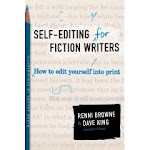It had to happen sometime. My editor hated my baby, my latest manuscript. She didn't like the characters, she didn't like their motivations, and thought they overreacted.
Of course I've had (many) manuscripts rejected before, and I've had edits on all my books. However, this was the first time I've submitted a contracted book that came back from the editor asking for a transplant.
We've all been there: the manuscript we've slaved over and poured our hearts into has come back, rejected. Sometimes the editor is kind enough to explain why, and that can hurt worse than simply saying "no."
So as I write today, please don't take this as a complaint against my editor. She's the greatest, and more than that, I believe she's right (as difficult as it is for me to admit that.) What have I learned through the process?
Listen to your critique partners. I was resistant to this degree of change, even though I suspected it might be coming. Others had warned me. Discover the fine line between opinion and genuine problems.
It's not personal. Although I discovered this was a very personal story as I examined it. The raw emotions reflected the time in my life when I first wrote the story (dealing with teenage angst in my children, over a dozen years ago.)
Take the time to do it right. I have also discovered that the areas I let slide--although I suspect they could be better--come back later for revision. Trust myself in the first place and redo.
Manage my time better. Part of the problem with taking the time was that I hadn't given myself enough time. My grandson came two weeks early and threw my whole schedule off. But if I had been better prepared ... it would have gone more smoothly.
Trust the process--and the Lord. I am asking God to make this book one of my most powerful.
Real life doesn't always seem real in books. I based my heroine's employer loosely on the place where I worked for ten years. Yet my editor kept saying "that's not believable"--about things I had experienced first-hand. I had to change or explain better.
What are some particularly difficult rewrites or rejections you've been asked to do? What did you learn from the experience?
Monday, December 13, 2010
Subscribe to:
Post Comments (Atom)












Great post, Darlene. We can all learn from your insight.
ReplyDeleteGreat post because I can so relate. I wasn't happy with my last manuscript and sure enough my editor pointed out things I knew could have been better if I'd just done it. Took a lot of revising and rewriting, but I do believe it's better now. We have to learn those lessons the hard way sometimes. Thanks for your attitude and response to your edits.
ReplyDeleteAll of this is easier said than done, right, ladies?
ReplyDeleteDarlene, thanks for this post. It's so easy to ignore that small voice or to not know when to listen to others. I appreciate your transparency, this has definitely happened to me and I learned many of the same lessons you mentioned. They were tough to go through, but necessary for me to grow as a writer. It helps knowing someone of your caliber struggles with this as well.
ReplyDeleteI think your post is a good reminder that even a contract doesn't seal the deal for us.
ReplyDeleteThanks, for sharing, Darlene. For me, you may recall my dear critique partner... right smack in the middle of the story. My heart was in it so strongly, yet I was advised to make changes. In hindsight, I see that sometimes when I feel SO passionate about something it may be a warning that I might lose my objectivity in that instance. It's good not to take it personal, even if it is personal. It's not about me, it's about the writing, and that is my primary goal.
ReplyDeleteThanks for being a great crit partner.
So true, CArla. I knew there might be something wrong but I was too close to see what or how to change it. And I'm glad to be your crit partner.
ReplyDelete